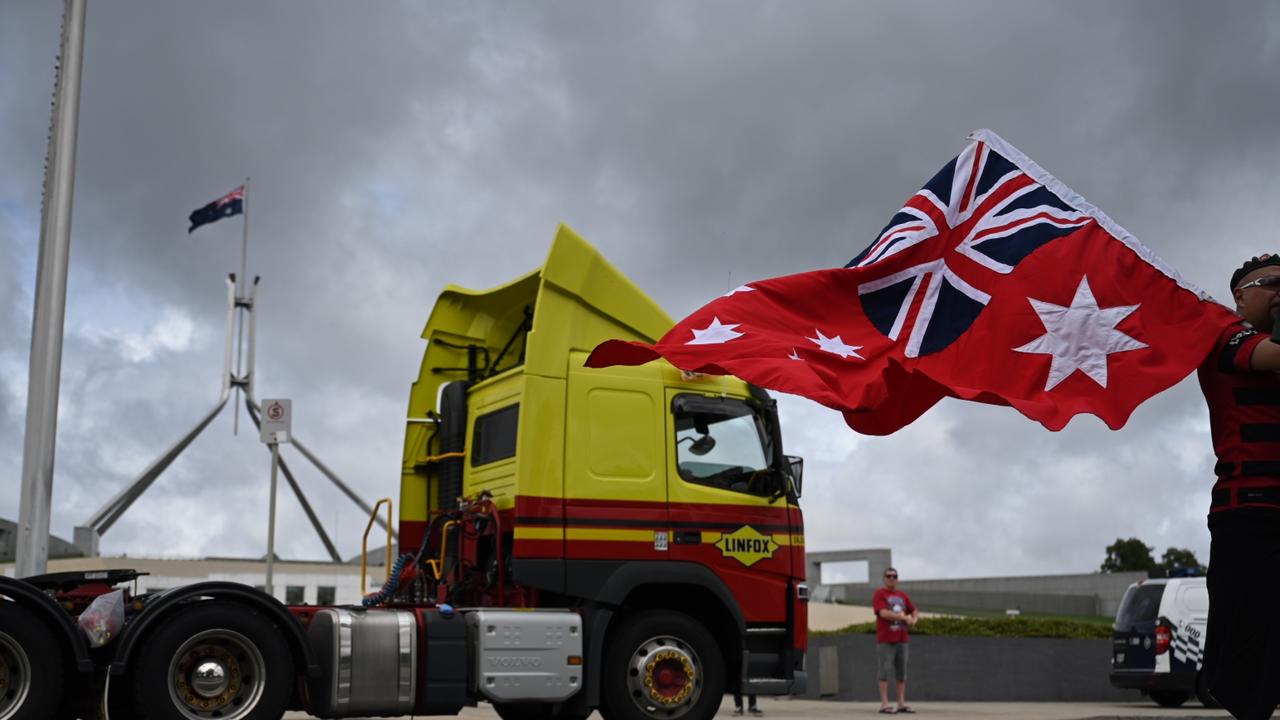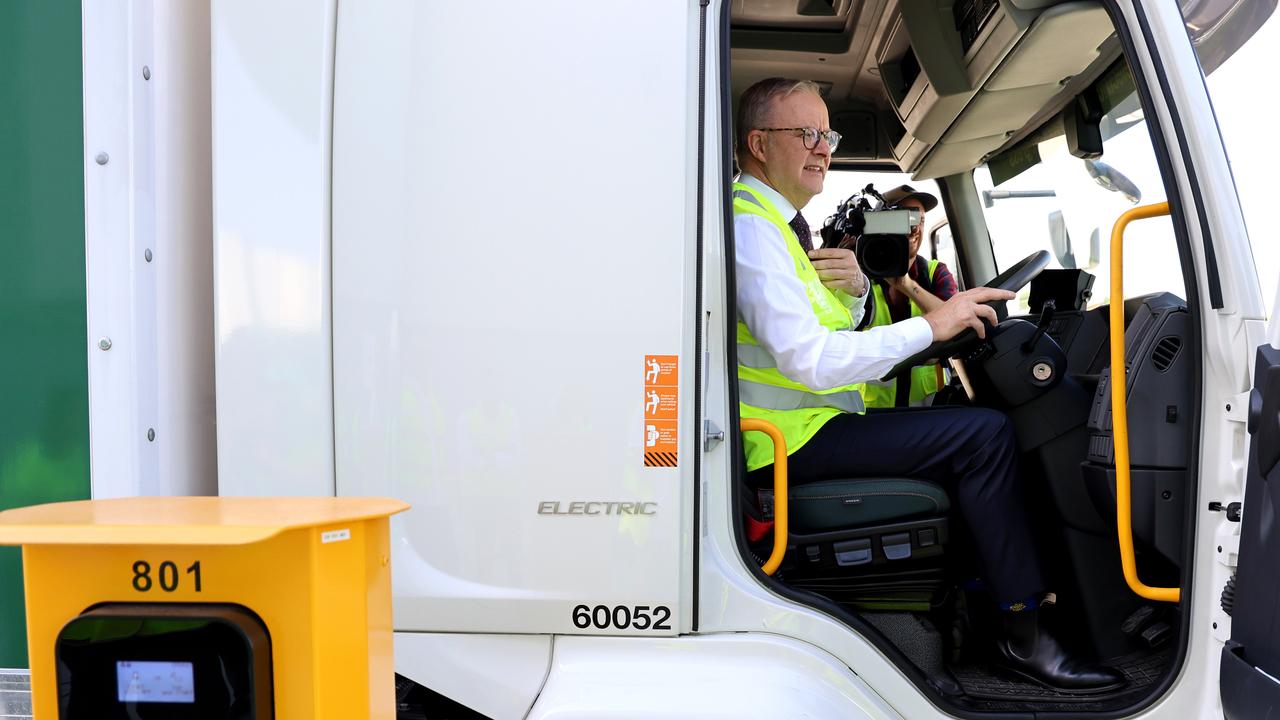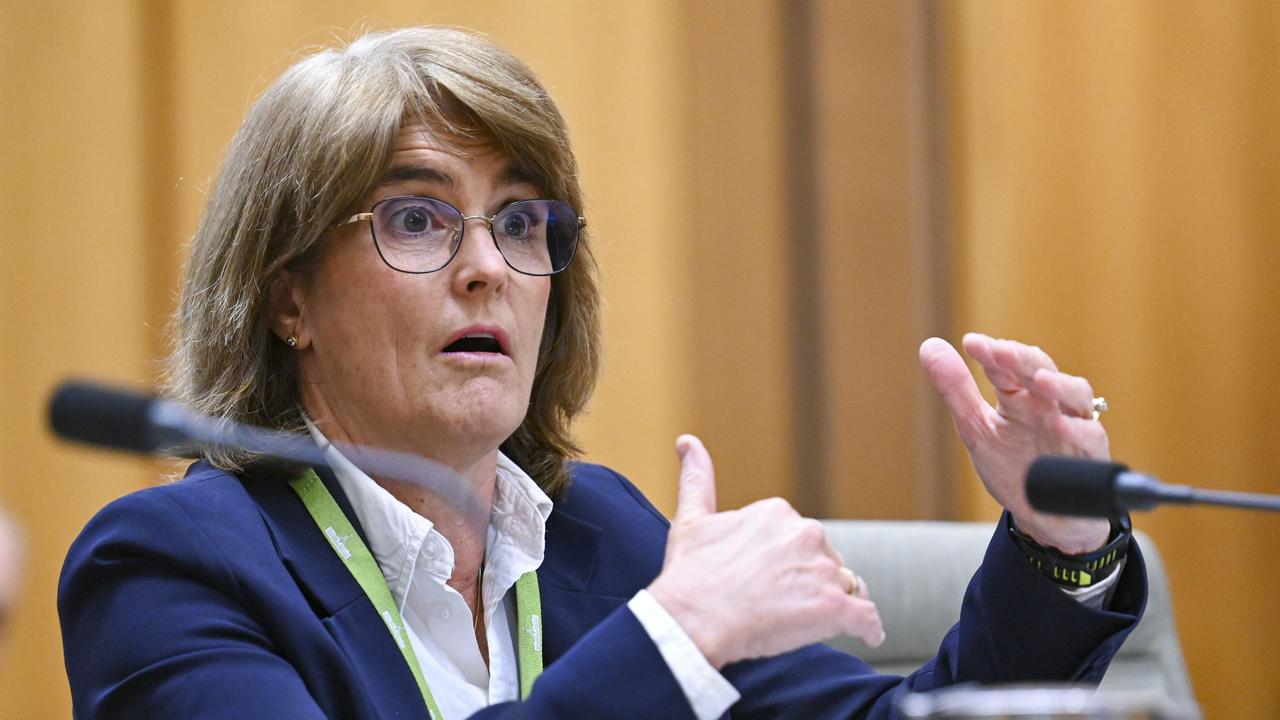Transport and mining in line of sight of unions in IR reforms
- 9:26AM JUNE 12, 2024
- 25 COMMENTS
In setting future interest rates, Reserve Bank governor Michele Bullock needs to take into account a likely big boost to Australian road transport costs later in the year.
Major transport industry operators tell me they expect that in the months that follow Australia’s IR Revolution Day, August 26, the unions will use the unprecedented powers awarded to them to ramp up transport industry costs.
Transport people are expecting cost rises of at least 10 per cent and possibly a lot more, which will be passed on and will affect every part of the Australian nation and help underwrite inflation above the Reserve Bank target.
Employers believe the unions’ two top targets after August 26 will be transport and mining. It is possible the transport thrust could be delayed until after the election but that would be a high risk strategy because, if the Coalition came to power, blocking the newly acquired union power in transport would be at the top of its agenda.
Despite pressure from parts of his party to call an early election, Prime Minister Anthony Albanese has promised that the government will serve its full term and the election will be around April/May next year. That gives the transport unions time to change the world of transport as we have known it for the last few decades.
Australian road transport costs have been contained in the last decade or two because of our amazing fleet of independent transport operators who are far more flexible than the big operators and their efficiency keeps prices down.
READ MORE: Widening gap between workers, bosses’ views on wage rises | Migrants not to blame for our housing crisis | The devil in the economic data detail |Many larger transport enterprises have been forced by the unions to pay around 20 per cent above award pay rates but often have trouble passing on those higher costs because of the efficient and lower priced independent truckies.
And because the proud independent truckies have their livelihoods on the line with their prized possession – their truck – that is beautifully presented on the roads and often much cleaner than the bigger operators’ trucks.
And because of the pride in their trucks they are among the safest drivers in the land. Tragically for the nation, their role in providing our transport needs to be stopped by government action to enable prices to rise and to create unprecedented union power.
Those suffering from cost of living pressures and higher interest rates would have a different view to the government.
In the early proposals the government looked to resurrect the dreaded Road Safety Remuneration Tribunal which, before being abolished, deliberately tried to put efficient and safe truckies out of business,
In the 700-page industrial relations act the Fair Work Commission has been given incredible power to set minimum rates of pay for contractors in the road transport industry.
The hidden aim of this action appears to be resurrecting, with a different name, the old Road Safety Remuneration Tribunal which set minimum rates for owner drivers that were so high that it put them out of work.
There was community outrage, particularly as the truckies being bankrupted by the tribunal couldn’t sell their beloved trucks at anything like the price they paid because so many were for sale.
Fair Work might not initially make that mistake, but the unions will try to invoke the “same work same pay” clauses in the act to and transpose them to transport contracts set by negotiation between providers of transport and their customers.
There may be lots of legal cases but the independent truckies who don’t somehow or other adapt to a rigged system will be put out of business. Again they will need to sell their trucks.
I suspect that the big winners from the act - the large transport companies who will be able to increase their prices and profits - won’t let the price of trucks fall too far because of the community outrage caused by bankrupted truckies being forced to sell their homes.
Giving a body that regulates employment conditions unprecedented powers to intervene in complex commercial arrangements between road transport businesses and the broader supply chain will have a huge impact on every aspect of the economy.
In his speech to the ACTU Congress earlier this month Prime Minister Anthony Albanese described the action of requiring the wage regulator to change commercial contracts as
“unions standing up for gig workers and owner drivers and working with us to establish a new jurisdiction that will deliver world leading minimum standards. because 21st century technology shouldn’t mean 19th century conditions for delivery workers”.
One could only imagine what would happen if the Prime Minister stood up before a group of proud truckies who look after their vehicle both in safety and hygiene and tell them they operate in 19th century conditions.
Truckies are not politically correct and their justifiable anger might be hard to restrain.
- Forums
- Political Debate
- 50c fares thanks to Comrade Miles
50c fares thanks to Comrade Miles, page-149
-
- There are more pages in this discussion • 24 more messages in this thread...
You’re viewing a single post only. To view the entire thread just sign in or Join Now (FREE)
 Transport people are expecting cost rises of at least 10 per cent. Picture: NCA NewsWire/ Martin Ollman
Transport people are expecting cost rises of at least 10 per cent. Picture: NCA NewsWire/ Martin Ollman One could only imagine what would happen if the Prime Minister stood up before a group of proud truckies and tell them they operate in 19th century conditions. Picture: NCA NewsWire / Damian Shaw
One could only imagine what would happen if the Prime Minister stood up before a group of proud truckies and tell them they operate in 19th century conditions. Picture: NCA NewsWire / Damian Shaw Transport price rises will be passed on and help underwrite inflation above the Reserve Bank Governor Michele Bullock’s target. Picture: NewsWire / Martin Ollman
Transport price rises will be passed on and help underwrite inflation above the Reserve Bank Governor Michele Bullock’s target. Picture: NewsWire / Martin Ollman








